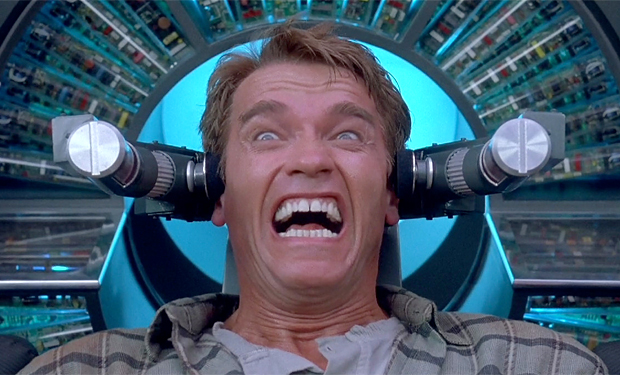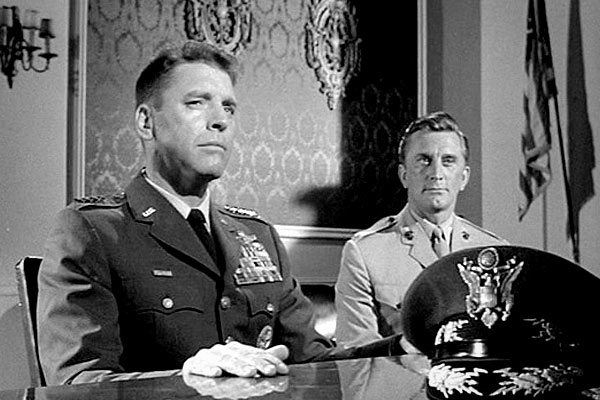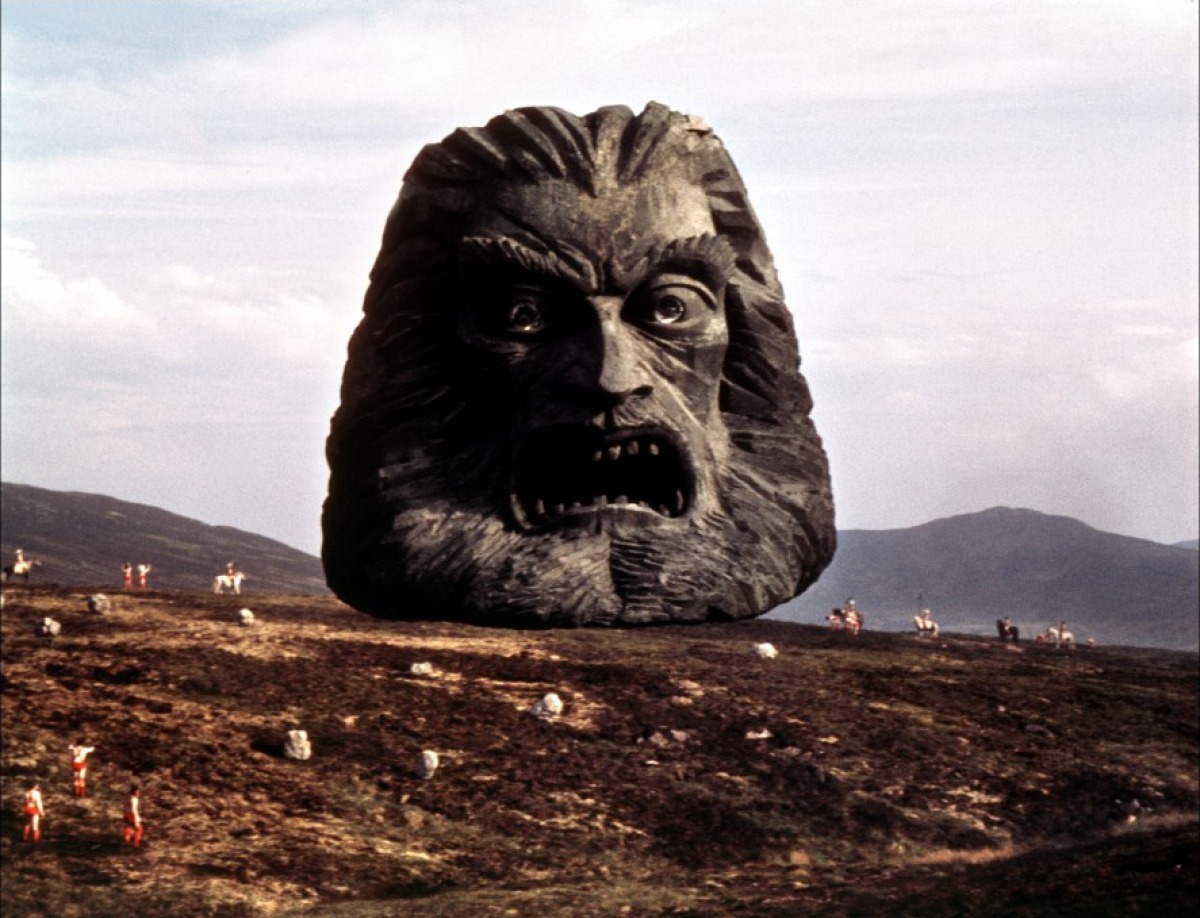
I have never been a fan of conspiracy movies or novels. It just seems ridiculous to me. On the other hand, I have always enjoyed the comedy versions of these conspiracies. Because, I adore the deluded mind and its creativity to come up with such prosperous claims.
Also, since I’m a computer scientist, I love playing with concepts, their manifestations and the experiences of their prospective users. When the puppet master behind this blog has suggested me to write about conspiracy movies, I thought about it for a while and then, said “yes.”
At first it seemed an odd choice to me. Now I find it reasonable that computer scientists should be interested in such literature, because we are used to crafting mechanisms for particular purposes and then, very much like the dark figures behind conspiracies, we hide these mechanisms way in the back where nobody can see them.
In our profession this is called encapsulation, hiding the implementation details of a system. Obviously, this is intended for simplicity. The user of a particular system need not deal with its complexity. He/she should be able to handle the task at hand easily.
For a developer on the other hand, just to have the slightest respect for himself/herself, he/she should be able to gain access to these mechanisms naturally, without any help from the more experienced ones. This way one realizes that he/she is cut out for this profession, that he/she is worthy of the team of system analysts. This is also the role we will play when we try to make the following movies more understandable.
If you like the process, why don’t you grab a book about programming? If you survive it, then you may proceed to system analysis. And, ladies, quite contrary to the hype, women make great programmers. Because, it all starts with the care and concern for the prospective users of that particular application.
I think I must make it even clearer why I have chosen such an expertise (analysis) for the task. Because, those who come up with conspiracies craft systems that have superficial meanings on the outside and mechanisms working to achieve hidden agendas inside. Uncovering such mechanisms requires the expertise of a system analyst.
A system analyst is a person who can play with concepts by deconstructing and reconstructing the grounds that give meaning to these concepts. In other words, he/she creates alternate meanings of what’s under his/her focus using different sets of presuppositions.
When you have uncovered the reasons behind a particular group’s attitude towards something, then, you have also uncovered their future as well. Because any well organized group will exhibit consistent behaviors. That is to say consistent with their hidden goals, not necessarily consistent with the easily observable atomic actions (or steps towards the goal). If you take this further by doing the same thing for all these groups competing for your attention, you have a fairly well drawn picture of your world.
“What about our own goals” you say? Forget about them and focus on other people’s goals and the underlying presuppositions. Once you have gained control over them, then you may go ahead and try to understand the whole thing for the second time by using your own presuppositions. Perhaps, influenced by the alternate interpretations of the situation, you’ll be tempted to modify your goals and presuppositions in the process.
1. Seven Days in May (1964, John Frankenheimer)

In the opening scene of the movie, we see protestors marching in front of the White House. It seems peaceful. Just after a few minutes protestors start fighting with each other, however. When you take a good look at them, you see that they all seem to be sure of what they are doing. I think such convictions only occur when we are making grave mistakes.
We reveal our best sides when we are unsure of ourselves… when we are clueless and the only thing we can depend on is just a gut feeling. Therefore, we must never forget that doubt, especially self-doubt is an essential part of thinking. Without it what seems rational may be the real reason behind our delusions.
Before going any further, we must ask ourselves a critical question. Why do these people fight with each other? We may say that they were carrying banners with opposite slogans. Did we really answer the question? Well, I don’t think so. So, let me ask the same question in a different manner: Why do people with alternate attitudes find fighting with each other normal? Why do they think getting rid of them in this occasion or for good as an acceptable solution?
Remember the final solution proposed by the Nazis? Forget about what you think about it and try to understand what they, the Nazis thought about it for a change. For some strange reason they thought it was a plausible idea. Why? Is it only because they were crazy and was it only a Nazi defect? As Hannah Arendt puts it in her book, The Origins of Totalitarianism (1951), this is a defect shared by all of us. If we don’t watch it, we may easily find ourselves as the oppressors, even if we are the ones being oppressed for a long time.
When you equate a set of certain characteristics with a particular group of people, you may go ahead and ‘think’ that these characteristics are properties of such people. Seeing people as holders of certain characteristics they cannot escape from is the most crucial stepping stone of racism, but we do it every day.
We are fascinated by machines… machines that can be deciphered… machines with a purpose and a set of functions that can be triggered over and over. It just feels normal. Well, as in the case of quantum mechanics, what feels normal or right may have nothing to do with the truth.
Most importantly, this way of looking at things always reduces human relationships into efficient interactions or commercial relationships. When we go even further and reduce ourselves into machines, we will have no other way to have a meaningful existence than starting to look for our makers. Stalin was not only a dictator, he was considered a god as well.
Perhaps, he did not have all the qualities of the invisible ones, but he had enough to be considered a deity. Think about Kim Jong-un’s father Kim Jong-il. Even if he is dead, he still has a place in the government. I mean, how obvious can you get?
The moment we think we are uncovering certain traits of people by figuring out their ‘properties’, we will also be paving the way for the big brother and the never ending conflicts that will make rich richer and the poor poorer.
2. The X-Files (1998, Rob Bowman)

First step in understanding this movie is the realization that there are more than one storylines. We have three viewpoints here. One belongs to the storyteller, the other belongs to the viewer. The third one will be created by us, the analysts. So, there will be two given storylines and another one created by us just to connect the two to each other.
The storyteller claims that he (this may be the director or the screenplay writer) deciphered the meaning of unintelligible events. In doing so, he accepts information made available by the relevant authorities in the events he has investigated are nothing but cover-up stories. In other words, he believes in the little green men and the involvement of the US government in such discoveries.
The second storyline belongs to the typical viewer of such movies. While it is argued in the past that the movie and the television show that preceded it were popular among different types of audiences, if you look closer you will see similarities among them.
Anyone who has a tendency to create conspiracy theories because of the feeling of worthlessness or the inability to cope with the surrounding world, will obviously find something here. Something that will support one’s ideas about his/her ability to reason, to find the root causes of a particular problem and then, to solve it by applying techniques learned in a higher education institution.
In other words, our second story ‘writer’ is an intelligent person who has found himself/herself in a position where there is no way out. A prolonged exposure to such circumstances not only strengthens one’s convictions, but also makes him/her blind to the opportunities that lies outside of this world of fiction.
So, where is the third storyline? Well, didn’t you notice, we have just written it when we were trying to explain what the first and the second storylines were all about? Just spot the dots and connect them on your own.
3. Zardoz (1974, John Boorman)

Understanding a conspiracy and not losing your grips on reality require you to differentiate what’s real from what’s fake. Interestingly enough, a Blu-ray version of this old movie is due this month and it’s about time we go over what it has been telling us once more: You cannot have an Eden separated from the rest of humanity whether it be physical or metaphysical.
Reverse that and you’ll get the following: You cannot have a Hell separated from the rest of the humanity whether it be physical or metaphysical. In other words, the conspiracy you are working on has inlets and outlets where you can take a peek from or you can escape through. If that’s not the case, then the conspiracy you are working on cannot be real. The perfect Eden or the Hell is a figment of your imagination. So, when what you perceive to be true becomes absolute and cover every ground, then it is not real anymore.
When asked about it, Zed says that he could see because “one day he saw men raping a seventy year old woman.” Upon hearing such an answer, we are tempted to accept it as gibberish. However, the person giving such an answer is baring his soul to us. Zed began to see only when his world made no sense anymore. In other words, one can really begin to see at the border of his/her world, at the border of reality.
This is where you would find these inlets and the outlets we are talking about. Unlike physical doors which can be used for coming or going, these conceptual doors are usually one way, because once go through one of them the way you see things changes. This in return changes the doors you may see afterwards.
What if your conspiracy looks impenetrable and perfect? If you cannot spot these doors, what can you do? Often, you’ll find yourselves talking about what you have been fed. You’ll see people doing exactly the same thing. They will get so alike in time that you will have a hard time telling who is who. After a long time, when you are on the brink of losing your identity completely, you realize that you are living a lie.
Because, regardless of whether there is a conspiracy or not, the way you are living has to change. When you are alive you are not supposed to get lower and lower, you are supposed to get higher and higher. And, sometimes this lowering of the human spirit is the result of an organized group. That’s when you have a conspiracy to worry about.
So, let me share with you a few tricks about spotting these doors. When you think there is a glitch in the story, something that doesn’t make any sense whatsoever, you might have found a door. A door is a part of the story, but it rejects the story or it is only intelligible beyond the confines of the story.
Take one scene form the movie: When Zed arrives in the Vortex, he meets its inhabitants (Eternals). Although he tries to escape, he is overpowered by their psychic powers. On the other hand, when he is displayed like an animal in front of a crowd and the host tried to observe his reactions to sexual stimuli, Zed surprised her.
Because he didn’t express automatic reactions because of uncontrollable urges. He looked at her and showed that he desired her over two sexy ladies giving each other a sponge bath. Typical isn’t it? A brute cannot handle the mumbo jumbo produced by the elite, but he can easily see that they are fake. Not only that, he can also see what has to be done to overcome their problems because of his being closer to what he is.
In other words, conspiracies and alternate world views are pretty much the same thing. They are the products of their respective dreamers. It is inevitable for those who create them to lose their touch with reality. One way or another, they will end up living in worlds where the dreamers become completely disillusioned, because they try to maintain their real world (or the reality) all the time.
Consider Europe’s and Turkey’s opposite reactions towards Syrian immigrants. I’m not talking about who is more humane and who is more selfish. On the contrary, I’m trying to say something more important. Can the rich nations of the world sustain a separate Eden from the rest of the world? Can we, Turks, continue to live in this chaotic part of the world denying our responsibility to crack the code?